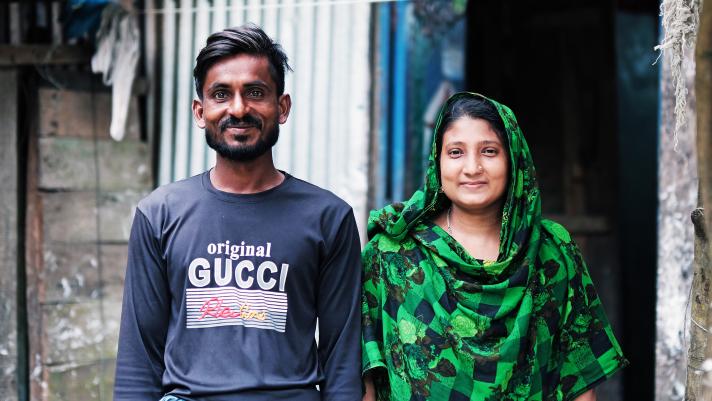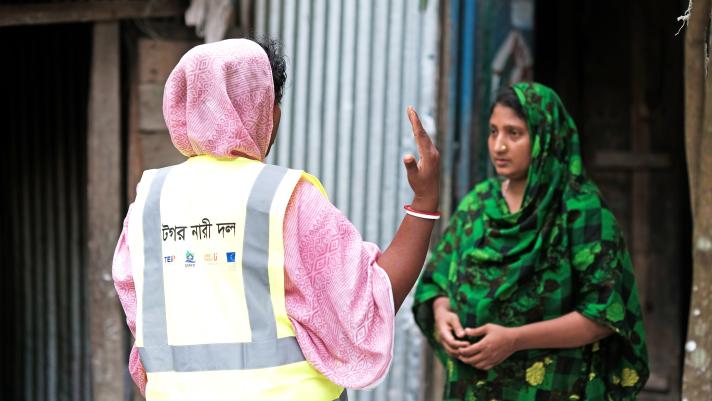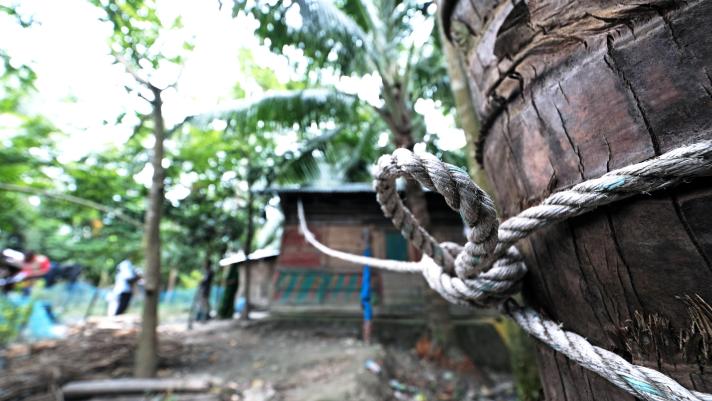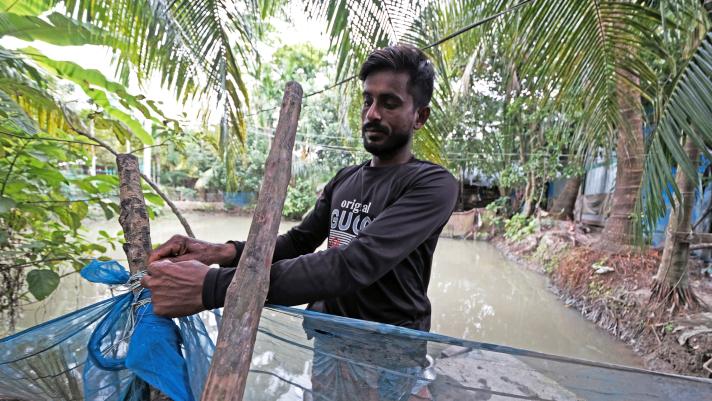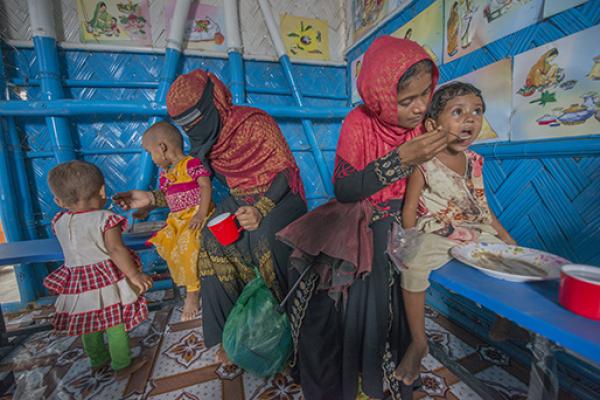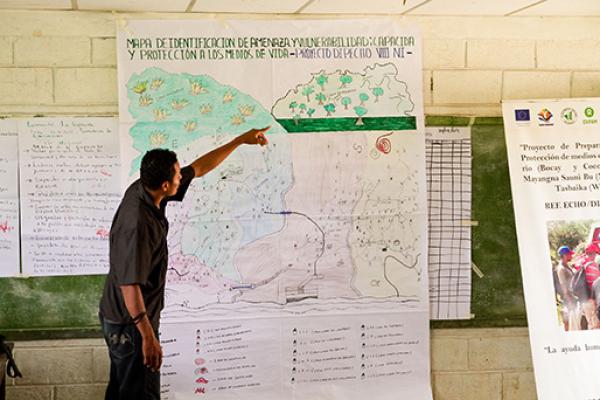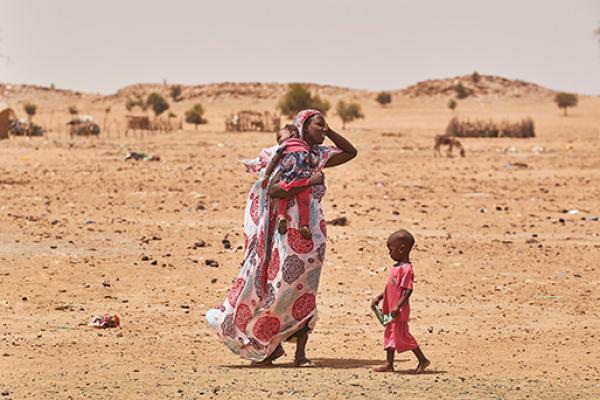On 26 May 2024, cyclone Remal made landfall in Bangladesh. It was the most devastating storm to strike Bangladesh in over a decade.
Remal caused widespread damage, but it didn’t catch the local population unprepared: the European Union, together with its humanitarian partner, Action Against Hunger (ACF), had provided cash assistance ahead of the cyclone and put in place preparedness measures to help the most vulnerable people protect themselves before the storm arrived.
Nestled along an expansive coastal area and surrounded by serene rivers in south-western Bangladesh, Satkhira is known as the gateway to the world’s largest tidal mangrove forest and the largest population of royal Bengal tigers. Many visitors flock to Satkhira every year for glimpses of the unique wildlife and jungle experiences.
The realities of daily life, however, are often far from the idyllic experiences that tourists relish, especially in the more remote areas. The district is highly prone to natural hazards ranging from tropical cyclones to torrential rainfall and from tidal surges to river erosion. Local families regularly face the impacts of these events, and the most vulnerable are often the most affected.
“We often experience cyclones, flash floods and tidal surges,” says 30-year-old Billal Howlader, the sole breadwinner of a family of 4. “I lost my home a few years ago when a cyclone hit our village. We had nothing left and had to rebuild our lives from scratch.”
“For a country extremely exposed to natural hazards like Bangladesh, we need to ensure that vulnerable people are better equipped to prepare and protect themselves from the impacts of such events,” says Mokit Billah, an EU humanitarian aid worker in Dhaka, Bangladesh. “Acting ahead of a forecasted hazard helps them to bounce back faster after such a traumatic experience.”
With humanitarian funding from the European Union, Action against Hunger (ACF) has worked with government units and local partners over the last few years.
The goal is simple: to ensure vulnerable communities have enough means and knowledge to withstand the devastating effects of natural hazards like cyclone Remal.
Under the programme, the pre-identified contingency plan was activated before cyclone Remal made landfall. Through public advisories and alerts, those living in at-risk areas were informed and provided with guidance on essential preparedness actions to prevent and mitigate the loss of lives and assets.
Furthermore, over 2,000 most-in-need people received around €38 in cash in advance, to buy whatever they needed most urgently. This allowance allowed them to implement anticipatory measures to protect themselves and their assets.
When cyclone Remal finally made landfall in Bangladesh, more than 4 million people were affected. Khulna division, where Satkhira is located, was amongst the worst-hit areas. Thanks to the EU-funded initiative, Billal and his family were more prepared this time.
“As soon as we received the cash, we went to buy some ropes to tie parts of our home to a tree nearby to prevent them from being blown away or uprooted”, says Billal, whose house is made of wood, corrugated steel sheets and soil.
“We also spent it on some dried food, candles, and mosquito repellent. These helped us get through the worst of the storm.”
In addition, Billal purchased some mesh to secure his small fishpond, so the fish wouldn’t be washed away.
“The mesh and bamboo we bought with the cash we received from the project helped minimise the damage to our house and properties, whilst also saving our fish,” confirms Tripty, a 40-year-old mother and farmer in a nearby village.
“We are grateful for this. We managed to avoid losing over €600 in damage with all the measures we put in place ahead of the cyclone.”

